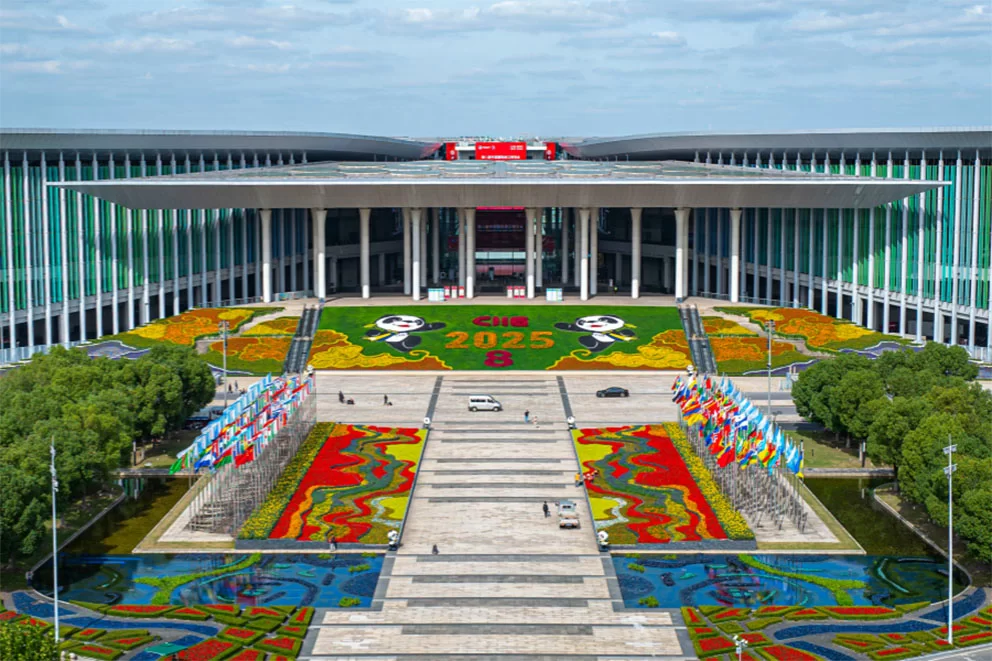The 8th China International Import Expo (CIIE), held in Shanghai, concluded on November 10 with a record-breaking $83.5 billion in intended trade deals, marking a 4.4% increase from the previous year. This announcement was made by Wu Zhengping, Deputy Director of the CIIE Bureau, during a press conference following the six-day event. The expo, which featured 4,108 participating companies and a total exhibition area of 367,000 square meters, set new benchmarks in both scale and participation. Among the exhibitors were 290 Fortune 500 companies and 180 multinational corporations that have participated in all eight editions of the CIIE. This year, 461 new products, technologies, and services were introduced, slightly surpassing the 450 innovations showcased in 2024. Participating companies have already secured contracts for approximately 80,000 square meters of exhibition space for the 9th CIIE, scheduled for November next year. The CIIE serves as a vital platform for multinational companies to showcase advanced technologies and exchange ideas to better adapt to the rapidly evolving Chinese market. Wu Zhengping emphasized that China is not only a vast consumer market but also a partner that values collaboration and innovation. Senior representatives from participating companies, such as Jorg Buchheim of the German Webasto Group and Andreas Renulf of Hexagon AB, highlighted the importance of the CIIE in gaining insights for future innovations and praised China’s market dynamics and openness to new technologies. The expo also reflects China’s efforts to further open its economy, as noted by Jacky Zou of KPMG China, who referenced the recent 15th Five-Year Plan (2026–2030) promoting institutional openness and international trade rules. The event demonstrated growing confidence among international investors in China, with Bill Winters, CEO of Standard Chartered, emphasizing the positive impact of China’s ongoing openness and economic growth on global cooperation. China’s vast domestic market continues to be a powerful driver for international trade and consumption, with opportunities for American companies in sectors ranging from technology and agriculture to specialized products like ginseng, pet food, and wine. The expansion of China’s visa-free policy has facilitated an influx of foreign tourists, further stimulating consumption. During the CIIE, China Daily launched the International Communication Initiative to promote exports to China and shopping in China, aiming to enhance the visibility of the Chinese market globally and foster collaboration. According to data from Chinese customs, imports in October rose by 1.4% year-on-year, marking the fifth consecutive month of growth. Improved tax refund and consumption policies in China are stimulating both domestic consumers and foreign visitors, as noted by researcher Chen Jianwei of the University of International Business and Economics in Beijing. International companies like Pernod Ricard and Tapestry Inc. are investing heavily in expanding their presence in China, driven by increasing demand for premium products and the dynamism of the Chinese market. These optimistic sentiments align with China’s policy goals to strengthen the national market and sustainably stimulate economic growth, as outlined in the recent communique of the Central Committee of the Communist Party of China. For many foreign visitors, shopping in China is more than just consumption; it is a cultural experience where tradition and innovation converge, as reported by China Daily’s Rochelle Beiersdorfer.
